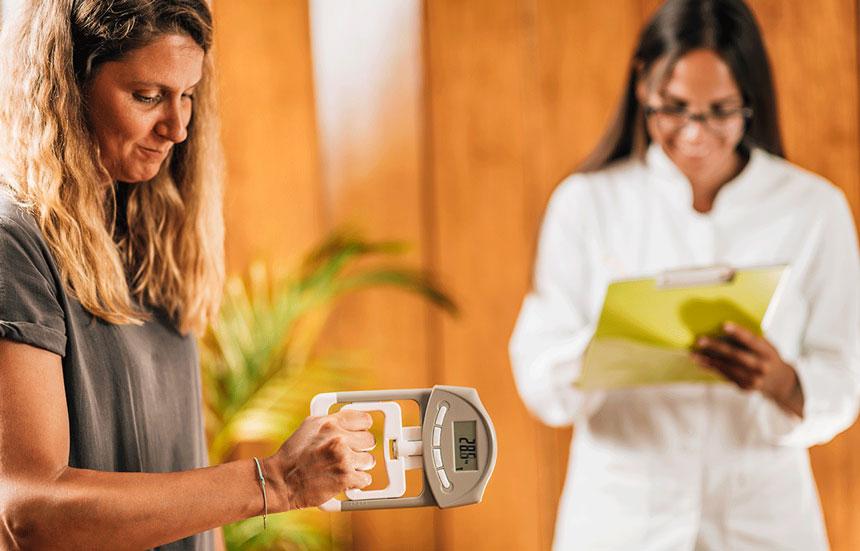The Connection Between Muscle and Biological Age

Is your doctor on your case to go to the gym? If yes, it’s because strength training helps prolong your life. In fact, the British Journal of Sports Medicine published a review 16 studies of that found just 30 to 60 minutes a week of resistance training increased life expectancy by 10 to 17 percent.
What’s the connection between weight training and longevity? Michigan Medicine – University of Michigan researchers believe muscle strength is tied to biological aging, according to a study published in the Journal of Cachexia, Sarcopenia and Muscle.
What is Biological Aging?
Biological aging signifies how well we function and perform daily tasks, as well as our cellular health. You probably don’t think much about your biological age because– most people rely on their birth date or chronological age to gauge aging. But aging is an individualized process dictated by genes, health history, lifestyle and life experiences. This means your chronological age may not accurately reflect the rate in which you’re aging.
Biological, psychological and social are the three types of aging that determine your actual age. This study focused on biological age, as it’s a well-documented risk factor for chronic illnesses such as heart disease, cancer and neurodegenerative conditions like Alzheimer’s, Huntington’s and Parkinson’s diseases.
A handful of lifestyle factors are notorious for contributing to biological age, such as:
- Smoking
- Drinking too much alcohol
- Being chronically stressed
- Being overweight/obese
- Lacking sleep
- Eating an unhealthy diet
But many studies suggest adding muscular weakness to this list.
The Importance of Muscular Strength
Muscular strength is important for our health. The stronger you are, the greater chances you have of surviving serious diseases. And the longer you can remain active.
Grip strength is used to predict total overall muscular strength. In short, it’s the maximum tension (or muscle strength) generated by your forearm muscles and it’s measured using a grip strength dynamometer.
Michigan researchers assessed data, including grip strength, from 1,274 adults middle aged and older that enrolled in the Health and Retirement Study between 2006 and 2008 and the 8-to-10-year follow-up period. They were looking for an association between grip strength and three “age acceleration clocks” related to DNA methylation (or DNAm -- a chemical reaction in the body that alters DNA and certain proteins, changing how molecules behave in your body). Clocks were modeled after studies that examined diabetes, cardiovascular disease, cancer, physical disability, Alzheimer’s disease, inflammation and early mortality, a process that provides a molecular biomarker and estimator of the pace of aging. Results showed an association between lower grip strength and a higher biological age, raising the risk for illness and premature death. They also came to the conclusion that muscle strength may protect DNAm, promoting health aging.
“It’s important to know your handgrip strength. For years, this test was a staple in fitness assessments. However, over time, some clinics have adopted it, such as MDVIP-affiliated offices.” says Bernard Kaminetsky, MD, medical director, MDVIP. “Many affiliated physicians include grip strength as part of MDVIP Wellness Program, as low grip strength is linked to an increased risk for a heart attack.”
How to Raise Your Grip Strength
Raising your grip strength involves performing grip strength exercises, along with an overall strength training program. Hire a fitness trainer to help you work out safely. Once you get the hang of working out, check out the strength and conditioning workouts available on MDVIP Connect.
You also should eat a healthy diet. Solid nutrition is key to achieve your muscle-gaining goals; hence the expression, “abs are made in the kitchen”. But don’t go it alone – consult a dietitian.
“Make sure you consult your physician before making any exercise or dietary changes,” says Kaminetsky.
Looking for a primary care physician? Consider partnering with an MDVIP-affiliated physician. An MDVIP-affiliated doctor can customize a wellness plan for you. Find an MDVIP affiliate near you and begin your partnership in health »


